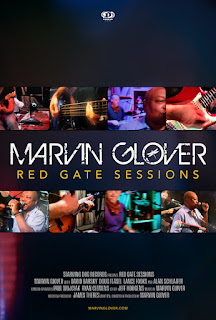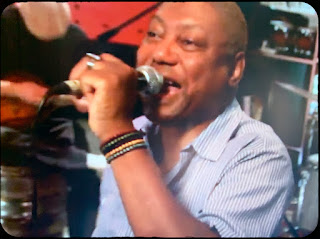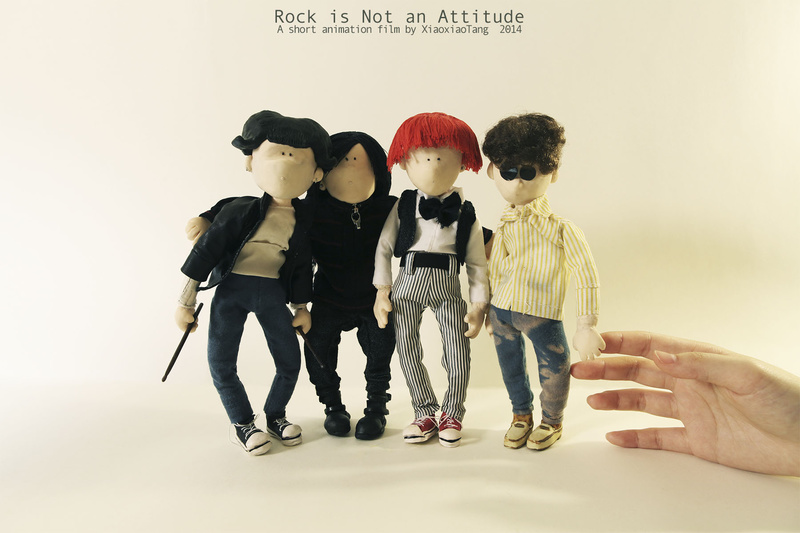ROFFEKE: Many of your artistic works center around themes of hope and empowerment. If, as the saying goes, "bad news sells" why then do you choose to focus on hope and empowerment?
MARVIN: Well I suppose the best way to answer this question is that, by definition, empowerment is the process of becoming stronger and more confident, especially in controlling one's life and claiming one's rights. The creative works that we develop and the content that we create can often provide hope to those that feel hopeless and also give a voice to the unheard. This should be empowering! I had to think long and hard about what kind of human I wanted to be and what kind topics I wanted to raise awareness of or shine a spotlight on. It's also about thinking about yourself and what you want to represent, as creators we become a brand.
ROFFEKE: You have produced more than 20 films in the short film, documentary, feature length and web series categories. What similarities and differences are there in producing each of these categories?
MARVIN: The work is generally the same. It takes the same amount of creative energy to make a short film as it does a feature. The process is the same. The difference is the budget and timeline! The elements can vary as with every project but the core items are pretty much the same.
ROFFEKE: Being a minority - whether in terms of race, gender, etc - is challenging in any field, including the film industry. What has been your journey in giving yourself permission to create?
MARVIN: I have never operated from a deficit, my mantra has always been that I don't need permission to create. I came into the profession with an edge so to speak. I had confidence, career experience in other industries that support entertainment, I had a stellar resume of education at some of the best schools. I am fluid in law, marketing, advertising and social sciences. I am a renaissance man and ambassador of travel, food, culture and the arts. I find interest in most everything. I say it's okay to be uncomfortable every now and then; you can learn and grow.
ROFFEKE: Any tips on fundraising for projects?
MARVIN: I was fundraising before the term became saturated. I have fundraised for every project that I've ever done. Every musical recording and every film has been supported by my "supporters". Tip number one: email is the best tool at your disposal to make a real connection. Tip number two: be authentic, people can smell a "fake" a mile away. Tip number three: give to others. Are you out to take someone's hard earned cash and give nothing in return. Tip number four: Drop the word investors from your vocabulary. People can support you and your projects, if you want an investor... invest in real estate! Seriously, in the U.S., if you are a first time home buyer and have decent credit. Buy a starter home with 3.5 percent down. Put some paint on the walls, cut the lawn, pull some weeds and anything else reasonable to improve the place and then sell it in a year. Take the cash that you profit from the sale after you pay off the loan and go make YOUR MOVIE. It's that simple. Skip the kissing backsides hoping that someone will fund your bright idea. What do you have to offer them in return? Nothing! Hollywood in general is a closed system so you need a body of work to get a seat at the table these days. I went to the best film school in the world, that cracked the door open for me. I wrote my own songs and placed them in my movies, which allowed me to become recognized in the music industry. I don't owe anyone anything and I own my work. Now this is not for everyone... We have multiple ways of making one's career successful. I carved my own path and forged it in the mold that I created. I think my supporters help me with my projects because they like me. It's not necessarily the type of music or the genre of film, it's about me continuing to produce content. They have the joy of bragging to their friends that they know me. I might add, make sure you can deliver on what you promised. Integrity is everything, the one time you slip and don't come through or follow up, you're done.
So obviously I can hold a clinic on fundraising, and most people will fail miserably at it. Set realistic goals.
ROFFEKE: In some parts of the world, rock and rock-laced music is considered "white". Your thoughts?
MARVIN: I say define this premise. I write and style my music based on my experiences. Rock music was taken from southern American blues and has morphed into many styles and genres. My story is one of global travel and I never stay squarely in one musical genre. This has likely hurt me because my initial audience of listeners may not have followed my musical journey from genres such as blues, R&B, pop, rock, psychedelic, traditional, etc. Everything is derivative, everyone is borrowing from someone else. I was born in Texas (the home of bluegrass/country/gospel, you name it. I was schooled in the early years in the UK (The Beatles, The Rolling Stones, they were imitators of black blues artists like, Robert Johnson, etc.) I then moved to the Pacific Northwest (the home of Jimi Hendrix, Heart, Nirvana, Pearl Jam, Macklemore and Sir Mix A Lot) and then Chicago (with its robust rock and blues scene). Then I lived in Australia and Hawaii ( each area has its own flavors and my music reflects bits of all of it. If you sat down and listened to my entire musical catalog from beginning to end you would pick up bits and pieces as far ranging as the ear can imagine. As consumers we need to put things in baskets in order to understand them. Some creations resonate with us on a deeper and more visceral level. I leave it up to the individual to bond or reject whatever is presented. I make music and create films based on my experiences and no one has traveled the specific road that I have. However points of reference that may be common in those works to others can be enticing. We all gravitate towards the familiar.
 |
| Marvin Glover |































































































































































































No comments:
Post a Comment